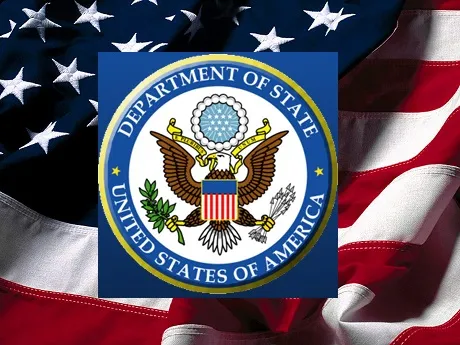The U.S. State Department provides additional details on the $109 million in aid to Haiti.
Of this amount, 94 million will be allocated to the Multinational Force soon to be deployed in Haiti, and the remaining 15 million to the Haitian Police.
On June 18, Secretary of State Blinken directed the State Department to proceed with the delivery of the notified $94 million in assistance for the Multinational Security Support Mission (MSS) in Haiti and the provision of an additional $15 million in assistance for the Haitian National Police (HNP). This assistance is essential to ensure the success of the MSS mission and to enable the HNP to combat gang violence, according to a State Department spokesperson contacted by CaribbeanTelevisionNetwork (CTN).
News of the additional funding was announced by the Miami Herald newspaper this week.
“The Haitian people can wait no longer,” stressed a State Department spokesperson, who emphasized the urgency of this aid.
This decision underlines the commitment of the United States to support the MSS mission and the PNH in their efforts to ensure the security of the Haitian people, the spokesman maintains.
Haiti has long been plagued by political instability, economic hardship and endemic gang violence. These problems have only exacerbated the country’s security crisis, making international support all the more urgent.
The United States has always played an important role in providing assistance to Haiti, and this latest aid program is a continuation of that commitment,” the spokesman said in a statement to CTN.
According to several Kenyan media reports, the first troops of the multinational force are due to arrive in Haiti shortly. The deployment of the force has been postponed several times for technical reasons.
The MSS is an international initiative designed to help stabilize regions affected by serious violence and conflict.
The State Department has provided no details on how this amount will be allocated to the MMS. The Biden administration’s decision to authorize the State Department to use its own internal funds was prompted by the refusal of the Republican-controlled House of Representatives to approve the aid request for Haiti.
The additional $15 million in aid to the Haitian National Police is particularly important. The HNP is under-resourced and overwhelmed by the scale of gang violence in the country. The funding is aimed at strengthening its capacity to fight crime and maintain public order.
A State Department spokesperson stressed the importance of this support: “This assistance is essential to ensure the success of the MSS mission and to enable the PNH to combat gang violence.”
By strengthening the HNP, the United States hopes to help create a more stable and secure environment in Haiti, enabling better governance and economic recovery.
The U.S. is not acting alone in this endeavor. The MSS mission is a collaborative effort involving multiple international partners, all working towards the common goal of stabilizing Haiti. The spokesman reiterated the importance of this cooperation and explained the Biden administration’s desire to work with international partners and Congress to support Haiti: “We remain committed to close consultation with Congress as we work with our international partners to support the efforts of the Haitian people to restore security to their country,” the spokesman assured.
Gang violence in Haiti has reached unprecedented levels, affecting every aspect of daily life for many Haitians.
These gangs control large swathes of territory, engaging in extortion, kidnapping and violent confrontations with the police. This lawlessness disrupts economic activities, displaces communities and erodes public confidence in government institutions.
The State Department spokesman acknowledged the seriousness of the situation: “The Haitian people cannot wait”, said the statement sent to CTN.
Beyond the strategic and security dimensions, U.S. support for Haiti has a profound humanitarian aspect. The impact of gang violence on daily life in Haiti is devastating, with countless families affected by chaos and instability. Several thousand people have been killed, while thousands more have been forced to leave their homes.







